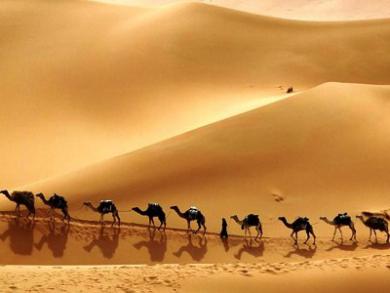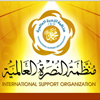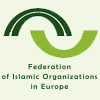You are here
New year of 1434 by Muslim calendar: lessons of Hijra for daily uses » Add new comment
Add new comment
The new month of Muharram, the first month of Muslim calendar, began on November 14, 2012, with the sunset. Accordingly, November 15, 2012 is the first day of 1434 by Hijra.
The All-Ukrainian Association of Public Organizations (AAPO) “Alraid” congratulates all the Muslims with the coming of this date which offers one a good reason to look back and ask him(her)self about his(her) matters or morals. Significance of this month is abundantly referred to across Koran and Sunnah. So, each Muslim should do his (her) best to spend it in service to the Most High. Hijra, which is emigration of the Prophet Muhammd to Medina, became the landmark in the history of Islam, and lots of important lessons can be learnt from this experience, especially for Muslim minorities.
Hijra as denial of lawlessness
Many treat the term “hijra” in the literary meaning (as emigration), speculating too much on the subject and calling all Muslims to leave non-Muslim countries and emigrate to Muslim ones, which, they argue, is a duty of Hijra. However, when Muslims established and secured themselves from religious persecutions, the Prophet of Allah (may be peace and blessings on him) abstained from commanding the faithful who were coming to him to emigrate to the lands of Islam. When asked if emigration was binding he said: “Perform prayer, pay zakat, deny lawlessness and live wherever you like”.
The majority of Muslims do not realize that because Jijra has actually been on till now, each of us can make benefits of it. It is true that the earliest emigrants (muhajirs) in times of the Prophet enjoyed special privileges comparing to others, but it should be remembered that these doors of mercy were not ultimately shut behind them.
The Prophet Muhammad (may be peace and blessings on him) said: “Muslim is the one who never harms another Muslim with his tongue or hands, whereas a muhajir (emigrant) is the one who avoids things prohibited by Allah”. This striking statement gives us great hope that we, too, can receive the reward of “muhajirs”.
Hijra occurs latently in our heart and, in the final end, has implications for our behavior and ideology. This type of Hijra is mentioned by the Prophet when he says about “the one fleeing from things prohibited by Allah”, which means not only physical movement in space, but change in religious and moral dimensions, movement from evil to good, from corruption to morality, willingness to endure any misfortune in order to keep on the right path.
This means one’s awareness of commands and prohibitions of Allah in the Koran and the Sunnah; one’s strength and capability to take hold of one’s feelings; good knowledge of the surrounding world; eagerness to elevate higher in the eyes of the Most High; permanent effort to improve one’s human and Muslim qualities. In fact, we can engage in these matters every day, and reference to good manners in the Hijra context, as abstaining from harming people by use of word or deed, is not accidental.
Being active and initiative part of the community
Another lesson of Hijra is participation of Muslims in community life and projects aiming to benefit the whole society rather than one’s own community. It can be learnt from muhajirs, as before Hijra Yathrib (Medina) used to be incredibly dirty town with spreading infectious diseases. Aisha (may Allah be pleased by her) narrated: “Before we moved to Medina, it used to be the dirtiest one of the Allah’s lands. The water here used be more stinking than elswhere”. The Prophet (may be peace and blessings on him) advised his companions to clean the town by removing dirt and garbage, and he told them to dig wells in various parts of the town. It is reported that more than fifty wells were dug in Medina, and after that clean water sufficed for all.
Also, the Prophet (may be peace and blessings on him) called the companions to cultivate lands and plant gardens on them. He pledged that whoever would cultivate dead lands, he would be given them in possession. Many people began to work on land, and soon after that there was no food shortage in the town.
Muslims who constitute a minority in their residence countries should follow the behavior model of the Prophet and his companions and exert every effort in improving and developing their residence countries, so that their behavior could show the beauty of Islam to surrounding people.
Hijra gives us lessons on how one should care about surrounding people and share with ones who got in strained circumstances, as ansars (Muslims of Medina) used to share their possessions, homes, foods and jobs with the coming muhajirs. Companions of the Prophet refused to live in idleness and started to work and trade, in order to earn legal means for subsistence and bring benefits to the town that welcomed them.
The Prophet Muhammad (may be peace and blessings on him) and his companions were the most fair, trustful, honest and truthful people among all ever known before. They used to behave sincerely and fairly with the population of Medina, irrespective of faith, nationality or culture. They were seeking for good and wellbeing for all.
Hijra shows noble morals and character of Muslims. It can be the landmark in the life of Muslim once again, if they learn and implement its invaluable lessons, convey to each and everyone the message of peace, friendship, brotherhood, progress, nobility and prosperity.
Note:
Muslim calendar was introduced in 639 by Halif Umar ibn Al-Hattab. It consists of 12 lunar months. The day of July, 12, 622, the first day of the first month (Muharram, 1) of the year of emigration of the Prophet Muhammad (may be peace and blessings on him) from Mekkah to Medina was taken as the beginning of the era.
Hijra calendar is common for Muslims across the world. There are countries where it is the official calendar, whereas for the other Muslims is serves as the religious calendar, used to fix the new year, Islamic festivals, beginning and end of the Holy Ramadan, and the period for Haj.
The welcoming address of the Religious Administration of Muslims of Ukraine (RAMU) says: “The significance of Hijra can hardly be overestimated. It has become the landmark event in the development of Islam as a religion and the Muslim civilization on the whole. It can be said that the Allah Most High supported His Messenger and the faithful by this emigration. Islam went beyond the boundaries of Mekkah, and soon it could conquer hearts and minds of millions of people. Hijra, therefore, has become the starting point for the whole Muslim civilization rather than Muslim calendar per se”.



















Recent comments